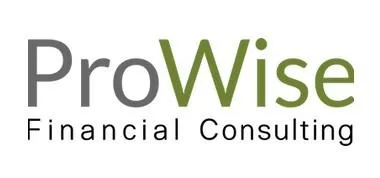Improve The Financial Health Of Your Professional Service Business

Reach your personal financial goals faster than you could on your own
Minimize taxes, maximize profit, and create more time freedom... guaranteed.



What I Do
I partner with my clients to help them make their business permanently profitable
Most CPA’s and accountants mostly focus on crunching numbers and putting them into little boxes on confusing forms. I am here to help you succeed.
A permanently profitable business comes from having the right financial systems from the day your business starts.
The financial health of you and your business is all interconnected. We focus on a comprehensive system that addresses all areas of your financial performance.
It’s a process I call Financial Harmony and I’ve used this proprietary approach with dozens of clients all over the country.
My clients say my techniques work incredibly well and are easy to implement.

100%
Success for all clients who implement
330+
Clients consulted in total
$2M+
Income Taxes Saved
18+
Years consulting & planning

Customized, comprehensive Financial Harmony solutions for professional service providers in private practice
Begin Achieving Financial Harmony for Your Business
1.Take The Financial Harmony Assessment
2.Get Your Business Health Score & Success Guide
3.Choose the Roadmap Best For Your Business
Our Clients Get Results
Here are Some of Their most Recent Comments
Before we worked with you, we didn’t have the systems in place to be as successful. Your systems have allowed us freedom.
Eric helped me develop
a structure to think differently about my business, organize the flow of cash & give me more peace of mind.
Eric has helped me keep more of what I make and saved me thousands of dollars in taxes.

Why I Do It
I’ve been in your shoes.
Having owned a professional service firm myself for over 15 years, I know what it’s like. Trying to achieve the success you want and deserve - the long hours, the uncertainties, the disappointments, and the highs and lows that every business owner, independent optometrist, consultant, agency owner, and service provider goes through.
It all starts because you have a passion and a purpose to help improve the lives of other people - your patients and clients. You want to live a life with purpose, abundance, and fulfillment.
So waking up in the middle of the night stressed out about money doesn’t really fit with these goals.
There must be a better way to get what you want - right?

Building a permanently profitable business is about more than chasing down more sales and working harder. The growth and success of your business is compounded exponentially when you have a comprehensive process in place to automate your profits, protect those profits from unnecessary taxes, and position those funds to reach your personal goals.
Working with me and my team, you will have access to a wealth of knowledge and practical experience, along with the accountability and support you need to achieve the success you deserve.
So check out this website to discover more about me and what I have done for others like you.
Then click here to begin your journey.
You’ll be so glad you did!

Testimonials
Just a small sample of the many testimonials given during more than 15 years of successfully helping independent service professionals in a wide variety of industries.
"Eric has been great to work with over the past several years. He saved us several thousand dollars the first year as our tax planner. He has since dove into our business which is very diverse and helped us develop a working financial plan and budget. Eric is very patient with our questions and is on top of all the latest tax changes. We are fortunate to have him on our team!"
- Jeff Otto
"I am so grateful I decided to work with ProWise and Eric. The tools and guidance he provides are actionable and easy to start on; seeing how they will positively impact my business was apparent from day 1."
- Courtney Pong
“I have had the pleasure of working with Eric for a little less than a year and I am continually impressed with his expertise, knowledge, and the genuine care he brings to his clients. He has a superb ability to identify, communicate, and help you implement simple solutions in your business that will save/make you tens, if not hundreds of thousands more every year in your business.”
- John Sedej
Sign-Up to Our Newsletter
Sign up for our newsletter to receive valuable insights and resources to achieve Financial Harmony.
Assessment | Resources | Privacy Policy | Terms of Use © 2025
ProWise Tax & Accounting LLC
DBA - ProWise Financial Consulting

